
Spire Global, Inc. (NYSE: SPIR) launched three satellites on the SpaceX Transporter-7 mission from Vandenberg Space Force Base on April 14th — Spire Space Services, the Company’s Space as a Service business, launched two 6U satellites for their customers.
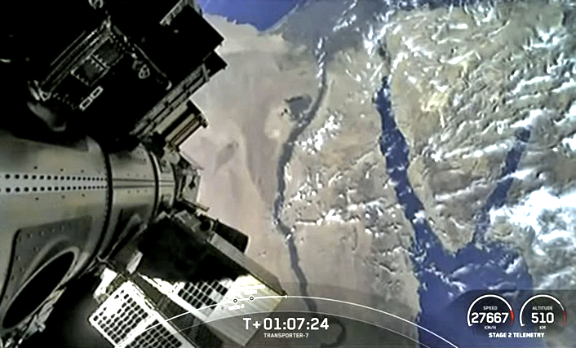
Spire launched a satellite developed for King Abdullah University of Science and Technology (KAUST), which aims to collect high-quality and high-resolution data across global terrestrial, coastal and ocean ecosystems and to help observe and characterize natural resources.
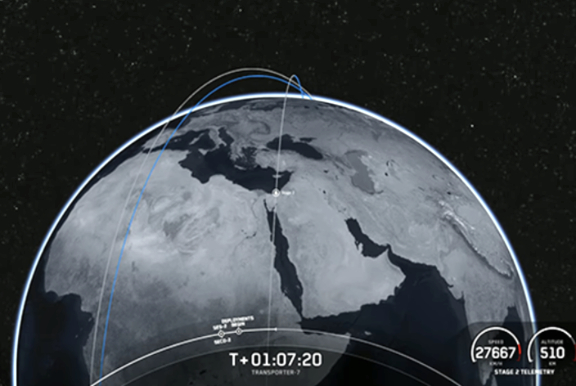
The 6U satellite hosts a hyperspectral camera with advanced on-board processing capabilities in combination with Spire’s Global Navigation Satellite System-Reflectometry (GNSS-R) sensor payload that will collect intelligence on soil moisture. The data collected will allow KAUST researchers to compile and analyze high-resolution imagery that can be used for mapping terrestrial habitats, monitoring vegetation health and condition, exploring coastal ecosystems and coral reefs, and advancing agro-ecological research, as well as many other Earth and environmental science applications.
“Working with Spire Space Services has allowed us to fast-track our satellite mission, which will provide unique insights to monitor, protect and preserve precious terrestrial and ocean systems in Saudi Arabia,. Spire’s expertise in GNSS-R paired with the hyperspectral instrument will yield valuable new information on both the state of existing ecosystems and for observing and characterizing changes resulting from ambitious national scale restoration and conservation strategies.” — Matthew McCabe, Director of the KAUST Climate and Livability Initiative
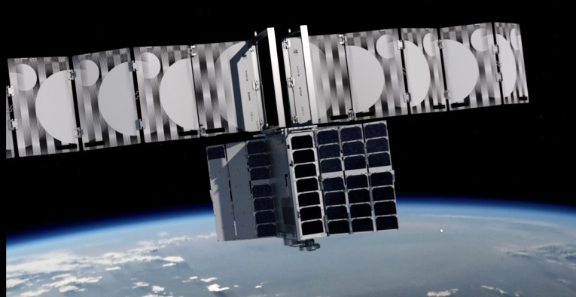
Spire also launched ADLER-2, the second satellite developed in partnership between the Austrian Space Forum (OeWF), a national space research organization, and Findus Venture GmbH, an Austrian investor in new space technology. ADLER-2 continues the mission of ADLER-1, which was launched in January 2022, to provide insights into space debris in LEO and expand novel atmospheric sensing capabilities to study clouds and aerosols in the atmosphere. ADLER-2 carries three payloads that detect and track orbital debris and perform air quality measurements around the globe, and it is expected to increase the debris detection rate.
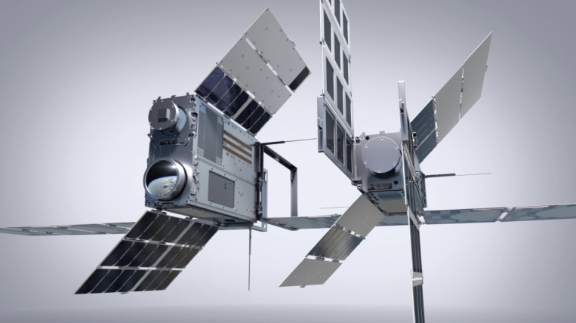
“Space debris is a challenging issue we must address as quickly as possible. To develop solutions, we first need a better overview of the current situation in Earth orbit. To that end, the Austrian Space Forum has teamed up with Spire Global, an expert when it comes to tailor made satellites and swiftly adjustable projects. With the successful launch and operation of ADLER-1, we now have proof of concept, and ADLER-2 will provide further valuable insights into space debris in Low Earth Orbit.” — Dr. Gernot Grömer, Director of the Austrian Space Forum
Spire also launched one satellite to support their own data solutions business, which encompasses the tracking of maritime, aviation, and weather activity from space. Spire’s data solutions constellation is fully deployed with high asset use and only requires about $10-12 million per year of capital expenditures to maintain. This satellite is furthering Spire’s competitive advantage while leveraging a technology improvement curve that is delivering 10X performance improvements every five years.
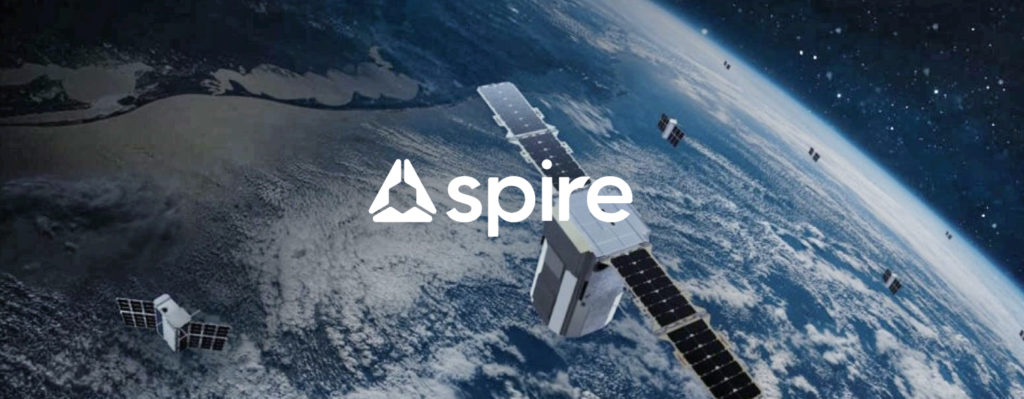
This satellite is equipped with Global Navigation Satellite System (GNSS) sensors to collect radio occultation (RO) and polarimetric radio occultation (PRO) data. These GNSS sensors gather precise data about the Earth’s atmosphere, including measurements on temperature, humidity, and precipitation, as well as ionospheric electron density. RO and PRO data can be assimilated into weather models to enhance the value and accuracy of global weather forecasts. Spire launched its initial PRO payloads, which were the first sent to orbit by a private company, in January 2023. Spire is the largest producer of radio occultation data, which is leveraged by government agencies such as NOAA, NASA, ECMWF, and EUMETSAT to drive global weather predictions.
The satellites were manifested on the mission through a multi-launch agreement between Spire and Exolaunch, which includes access to the Transporter missions through Exolaunch’s long-term launch arrangements with SpaceX. Spire will launch additional satellites on SpaceX Transporter missions later this year.
Spire Space Services, with a $39 billion total addressable market, allows organizations to deploy and scale their own satellite constellation at maximum speed and reliably, all through a subscription model that eliminates the high upfront cost of building and maintaining infrastructure in space. Commercial and government organizations can deploy and operate a constellation of satellites, a hosted payload, or a software application in space with Spire’s infrastructure.
“With Spire Space Services, our goal is to simplify space and make it accessible so that anyone is able to benefit from the insights and intelligence that can be garnered from the ultimate vantage point,. Both KAUST and ADLER-2 are prime examples of organizations that have leveraged our platform to build space-based applications and gather intelligence to promote sustainability on Earth and beyond.” — Frank Frulio, General Manager of Space Services, Spire
